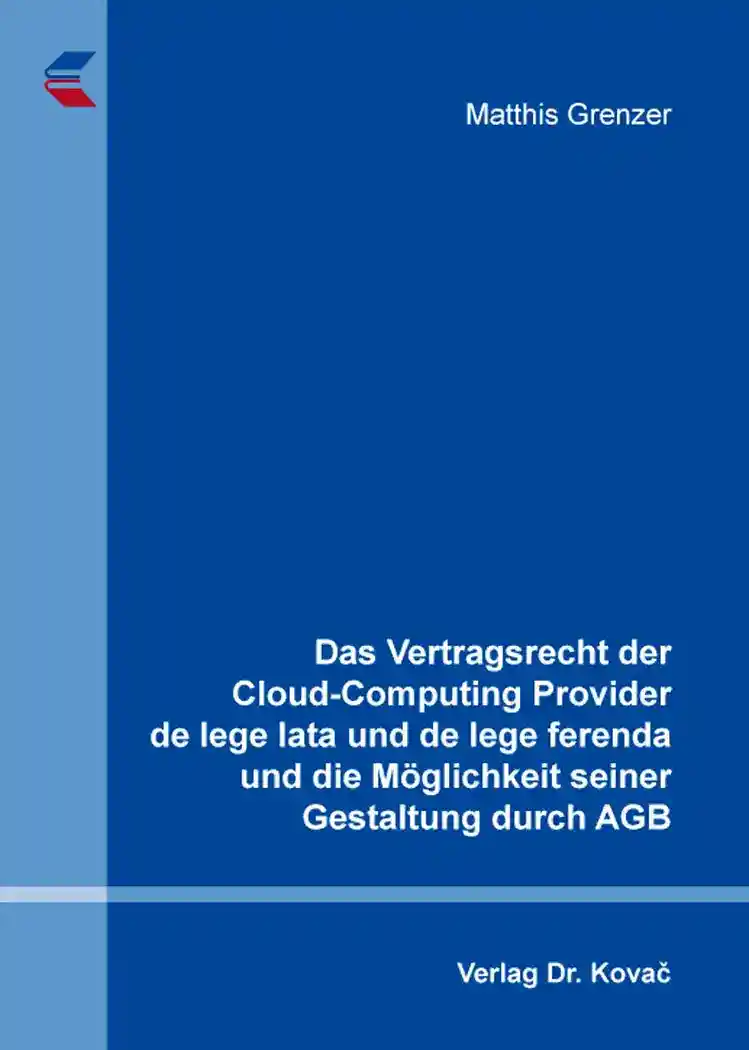Matthis GrenzerDas Vertragsrecht der Cloud-Computing Provider de lege lata und de lege ferenda und die Möglichkeit seiner Gestaltung durch AGB
Studien zum Vertragsrecht, volume 30
Hamburg 2020, 378 pages
ISBN 978-3-339-11628-4 (print) |ISBN 978-3-339-11629-1 (eBook)
About this book deutschenglish
„Cloud-Computing“ is the future, at least according to the advertisers throwing around this buzzword. Unfortunately, the one true, ubiquitous definition of Cloud-Computing does not exist. A diligent lawyer wanting to draft reliable contracts uses distinctive terms. But how can a lawyer formulate contracts regarding cloud-services? There are no provisions explicitly pertaining to such contracts in the German Civil Code yet. However, a new EU regulation concerning contracts for the supply of digital content and services will crucially modernize the German Civil Code.
A lawyer always needs to define which contractual party needs to fulfill which specific obligation. Only then is it possible to assess what requirements the contractual law provides for the parties and if and to what extend they are allowed to deviate from these provisions. “The contractual law for Cloud-Computing-Providers de lege lata and de lege ferenda and the possibility of its modification via terms and conditions” (Das Vertragsrecht der Cloud Computing Provider de lege lata und de lege ferenda und die Möglichkeit seiner Ausgestaltung durch AGB) first develops a definition of those contractual obligations, which by their nature are to be considered cloud-services based on the technical functionality of cloud-computing. Then the German law of obligations‘ provisions applicable to cloud-contracts are described, based on the German Federal Supreme Courts‘ jurisprudence pertaining to similar contractual obligations and illustrating the jurisprudential method for the determination of the applicable law of obligations for non-codified contractual obligations. The directive (EU) 2019/770 will cause significant legislative changes for business-to-consumer contracts, whose impact is analyzed. The final chapter examines the range of possible deviations from the generally dispositive German Civil Code’s provisions via terms and conditions. This examination is focused on contractual clauses typical for cloud-contracts.
Keywords
AGBBesonderes SchuldrechtCloud ComputingDigitale Inhalte RichtlinieDigitalisierungNovelleVerbraucherschutzVertragsrechtVertragstypologische EinordnungIhr Werk im Verlag Dr. Kovač

Möchten Sie Ihre wissenschaftliche Arbeit publizieren? Erfahren Sie mehr über unsere günstigen Konditionen und unseren Service für Autorinnen und Autoren.
